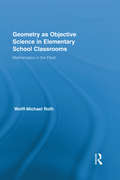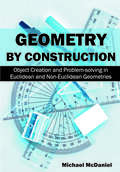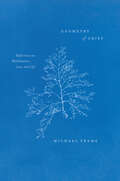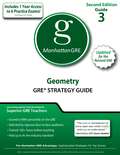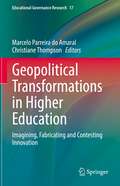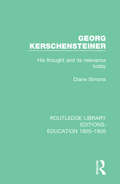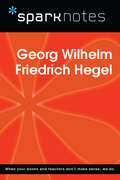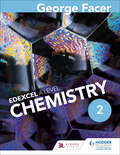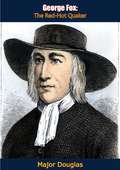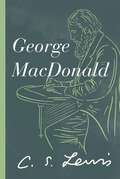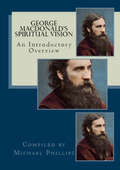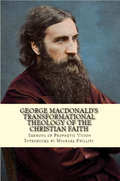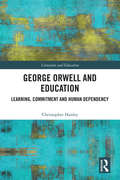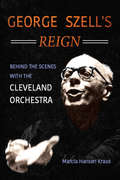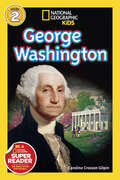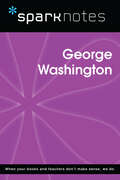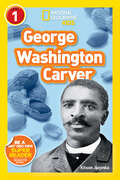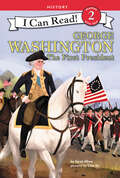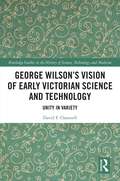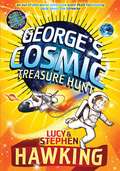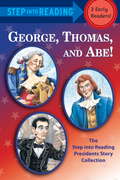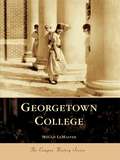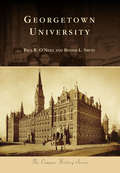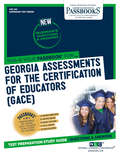- Table View
- List View
Geometry as Objective Science in Elementary School Classrooms: Mathematics in the Flesh (Routledge International Studies in the Philosophy of Education)
by Wolff-Michael RothThis study examines the origins of geometry in and out of the intuitively given everyday lifeworlds of children in a second-grade mathematics class. These lifeworlds, though pre-geometric, are not without model objects that denote and come to anchor geometric idealities that they will understand at later points in their lives. Roth's analyses explain how geometry, an objective science, arises anew from the pre-scientific but nevertheless methodic actions of children in a structured world always already shot through with significations. He presents a way of understanding knowing and learning in mathematics that differs from other current approaches, using case studies to demonstrate contradictions and incongruences of other theories – Immanuel Kant, Jean Piaget, and more recent forms of (radical, social) constructivism, embodiment theories, and enactivism – and to show how material phenomenology fused with phenomenological sociology provides answers to the problems that these other paradigms do not answer.
Geometry by Construction: Object Creation and Problem-Solving in Euclidean and Non-Euclidean Geometries
by Michael McDanielCollege geometry students, professors interested in undergraduate research and secondary geometry teachers will find three rich environments in this textbook. The first chapter contains many of the standards of Euclidean college geometry. The second and third chapters introduce non-Euclidean models where some Euclidean rules hold and others do not. With emphases on constructions and proofs, the reader is encouraged to create the objects under investigation and verify the results with reasoning. Since both models of “bent” spaces exist in Euclidean geometry, the reader gains facility with Euclidean moves through the whole book, even while exploring non-Euclidean spaces. The book itself is meant to be unpacked, expanded and taken further, just like the problems it contains. Geometry by Construction challenges its readers to participate in the creation of mathematics. The questions span the spectrum from easy to newly-published research and so are appropriate for a variety of students and teachers. From differentiation in a high school course through college classes and into summer research, any interested geometer will find compelling material. Teachers and professors might especially appreciate the way constructions provide open-ended questions which resist internet searches for solutions. College students should find the five refereed results from undergraduates like themselves encouraging. The active reader joins the mathematical tradition of a laboratory being a notebook plus a compass and ruler (or a dynamic geometry program on a computer.) New ideas await exploration and here are examples!
Geometry of Grief: Reflections on Mathematics, Loss, and Life
by Michael Frame&“With poignancy and audacity, Frame builds an unexpected bridge between mathematical beauty and human sorrow, illuminating both.&” —Francis Su, author of Mathematics for Human Flourishing We all know the euphoria of intellectual epiphany—the thrill of sudden understanding. But coupled with that excitement is a sense of loss: a moment of epiphany can never be repeated. In Geometry of Grief,mathematician Michael Frame draws on a career&’s worth of insight—including his work with a pioneer of fractal geometry Benoit Mandelbrot—as he delves into this understanding of loss. Grief, Frame reveals, can be a moment of possibility. Frame investigates grief as a response to an irrevocable change in circumstance. This reframing allows us to see parallels between the loss of a loved one and the loss of the elation of first understanding a tricky concept. From this foundation, Frame builds a geometric model of mental states. An object that is fractal, for example, has symmetry of magnification: magnify a picture of a mountain or a fern leaf—both fractal—and we see echoes of the original shape. Similarly, nested inside great loss are smaller losses. By manipulating this geometry, Frame shows us, we may be able to redirect our thinking in ways that help reduce our pain. Small-scale losses, in essence, provide laboratories to learn how to meet large-scale losses. Interweaving original illustrations, clear introductions to advanced topics in geometry, and wisdom gleaned from his own experience, Frame&’s poetic book is a journey through the beautiful complexities of mathematics and life. &“Intriguing.&” —Nature &“Poignant and beautiful. &“ —Steven Strogatz, New York Time– bestselling author of Infinite Powers &“A wonderful memoir.&” —Choice
Geometry: GRE Math Strategy Guide 2nd Edition
by The Editors ar the Manhattan GREThis volume guides students through the intricacies of shapes, planes, lines, angles, and objects, illustrating every geometric principle, formula, and problem type tested on the GRE.
Geopolitical Transformations in Higher Education: Imagining, Fabricating and Contesting Innovation (Educational Governance Research #17)
by Christiane Thompson Marcelo Parreira do AmaralThis book discusses the central role education and research play in generating both value and comparative advantages in the (imageries of) global competition, competitiveness and transnational value chains. They are seen as assets placed at the forefront of developments that are arguably reshaping individuals, society and economy. This edited volume explores these developments in terms of changing relations between society, economy, science and individuals. The idea that we live in global knowledge societies and knowledge-based economies or that present-day productive systems constitute an industry 4.0 have gained currency as descriptions of contemporary society that are said to bear direct and indirect consequences for political, economic, and social orders. In this context, innovation, science and education are central themes in contemporary discussions about the future of modern societies. Innovation is enthusiastically embraced as the panacea for all sorts of societal issues of our times; science is equally deemed to play a decisive role in solving current problems and in heralding a bright future with more wealth and more welfare for all citizens; education is conferred the task to producing individuals equipped with both skills and competences considered key to innovation but also displaying the attitudes and dispositions that will secure continuous innovation and economic growth.
Georg Kerschensteiner: His Thought and its Relevance Today (Routledge Library Editions: Education 1800-1926 #14)
by Diane SimonsThis book, first published in 1966, is an introduction to the life and work of Georg Kerschensteiner, the pioneer of the modern German system of vocational education, a system which is largely responsible for Germany’s remarkable industrial recovery and advancement after the Second World War. This title will be of interest to students of education and history.
Georg Wilhelm Friedrich Hegel (SparkNotes Philosophy Guide)
by SparkNotesGeorg Wilhelm Friedrich Hegel (SparkNotes Philosophy Guide) Making the reading experience fun! SparkNotes Philosophy Guides are one-stop guides to the great works of philosophy–masterpieces that stand at the foundations of Western thought. Inside each Philosophy Guide you&’ll find insightful overviews of great philosophical works of the Western world.
George Facer's A Level Chemistry Student Book 2
by George FacerExam Board: EdexcelLevel: AS/A-levelSubject: ChemistryFirst Teaching: September 2015First Exam: June 2017Helps higher achieving students to maximise their potential, with a focus on independent learning, assessment advice and model assessment answers in this new edition of George Facer's best-selling textbook- Encourages independent learning with notes and clear explanations throughout the content - Strengthens understanding with worked examples of chemical equations and calculations - Stretches the students with a bank of questions at the end of each chapter - Provides assessment guidance and sample answers
George Facer's Edexcel A Level Chemistry Student Book 1
by George FacerExam Board: EdexcelLevel: AS/A-levelSubject: ChemistryFirst Teaching: September 2015First Exam: June 2016Help higher achieving students to maximise their potential, with a focus on independent learning, assessment advice and model assessment answers in this new edition of George Facer's best-selling textbook.- Encourages independent learning with notes and clear explanations throughout the content- Strengthens understanding with worked examples of chemical equations and calculations- Stretches the students with a bank of questions at the end of each chapter- Provides assessment guidance and sample answers
George Fox: The Red-Hot Quaker
by Major DouglasThe story of George Fox’s life suffers from two great disadvantages which the reader should always bear in mind.In the first place, the old, strange, stilted language, used by all in his day, makes it difficult for us to feel as much at home with him as we should do. We must remember that even Salvationists in our own days are tempted when they write to give up their simple, everyday language, and to wrap up their thoughts more fashionably. But those who will try to see George Fox, as he so often was to be found, praising the Lord in a stinking prison cell, will be able in spite of his strange words to grasp his glorious meaning.And then we have also to remind ourselves that he had little chance either to observe or to organize any regular and effective warfare. For over a hundred years England had been victimized by religious discussions until the very idea of real worship had been almost lost. No wonder at poor George’s perplexities when his hungry soul began to long for God, and no wonder that the great note of his whole life thereafter was so largely that of avoiding whatever others did. If he could anywhere have seen how singing processions, flags, music, open-air demonstrations could be used in the power of the Holy Ghost to the salvation of the people; and if he could have been allowed to organize accordingly, all England would have been stirred and perhaps delivered at once from the curses of formalism and spiritual death. But it may be that God only granted him light according to what it was then possible to do. He lived a prophet’s life leaving to us in these days of liberty, not a complete description of our duties, but an example of fearless, devoted service, that, alas, but few have ever attempted to follow.
George MacDonald
by C. S. LewisUna antología de 365 días de lecturas de uno de los escritores más influyentes de todos los tiempos, George MacDonald, recopilada por el propio C. S. LewisEsta colección, compilada por el propio Lewis, presenta escritos de MacDonald, considerado como uno de los mejores escritores cristianos de los finales del XIX, principios del siglo XX y quien sirvió de influencia de grandes escritores como Lewis Carrol, WH Auden, JRR Tolkien, Walter de la Mare y en este caso C. S. Lewis.George MacDonaldAn 365-day anthology of readings from one of the most influential writers of all time, George MacDonald, compiled by C. S. Lewis himselfThis collection, compiled by Lewis himself, features writings by MacDonald, considered one of the best Christian writers of the late 19th, early 20th century and who served as an influence on great writers such as Lewis Carrol, WH Auden, JRR Tolkien, Walter de la Mare and in this case C. S. Lewis.
George MacDonald's Spiritual Vision: An Introductory Overview
by George MacDonaldA leading George MacDonald scholar presents a fascinating introduction to the 19th century Scottish author&’s views on Christianity, faith, and God. The Victorian author, poet, and theologian George MacDonald inspired some of the greatest writers of the early 20th century, including C.S. Lewis, who said MacDonald&’s books were pivotal in leading him toward Christianity. While MacDonald&’s beloved fiction—including classics like Robert Falconer and At the Back of the North Wind—remain popular, his sermons and nonfiction writings on faith are less well-known. Now MacDonald scholar and biographer Michael Phillips presents a comprehensive introduction to George MacDonald&’s theological ideas. In George MacDonald&’s Spiritual Vision, Phillips provides extensive, thematically arranged quotes from the author&’s writings. This brief volume covers topics from the nature and character of God to salvation, justice and atonement.
George MacDonald's Transformational Theology of the Christian Faith: Sermons of Prophetic Vision
by George MacDonaldThis volume of the Victorian author&’s sermons presents an in-depth understanding of his views on Christian faith, edited for modern readers. Though he is best known today for his beloved fiction and fairy tales, such as the classics Robert Falconer and At the Back of the North Wind, George MacDonald was also an influential and visionary theologian. Now MacDonald scholar and biographer Michael Phillips presents a collection of the author&’s sermons, expertly edited for modern readers and accompanied by the original texts. Each selection is also introduced by Phillips&’s illuminating commentary. The sermons collected in this volume are prophetic in that &“MacDonald anticipates the perspectives of eternity, which is truly the most far-reaching kind of prophetic vision. He examines with profound insight an wisdom the eternal methods and purposes of God, and to a lesser extent even some of the potential outcomes that may lay in God&’s heart to accomplish&” (from the introduction).
George Orwell and Education: Learning, Commitment and Human Dependency (Literature and Education)
by Christopher HanleyGeorge Orwell and Education uses Orwell’s life and works to address current educational questions. His early life, political awakening and artistic development are key elements in the book’s presentation of Orwell himself as a learner, and as someone whose ideas continue to speak to contemporary debates about human interdependency. The focus of the book is on critical issues in education, including the idea of universality, the status of young people and the nature of learning. Orwell’s efforts to conceptualise, and artistically realise his own experience, create a platform for exploring current educational issues in their philosophical and political contexts. This book will encourage a reimagining of, and stimulate debate about an idea of education that is less individualistic, pays greater attention to human mutuality, is politically engaged and ultimately more sustainable. The book will appeal to researchers, scholars and post-graduate students in the fields of literature in education, pedagogy, educational philosophy, literary theory, citizenship and youth and community.
George Szell's Reign: Behind the Scenes with the Cleveland Orchestra
by Marcia Hansen KrausGeorge Szell was the Cleveland Orchestra's towering presence for over a quarter of a century. From the boardroom to the stage, Szell's powerful personality affected every aspect of a musical institution he reshaped in his own perfectionist image. Marcia Hansen Kraus's participation in Cleveland's classical musical scene allowed her an intimate view of Szell and his achievements. As a musician herself, and married to an oboist who worked under Szell, Kraus pulls back the curtain on this storied era through fascinating interviews with orchestra musicians and patrons. Their recollections combine with Kraus's own to paint a portrait of a multifaceted individual who both earned and transcended his tyrannical reputation. If some musicians hated Szell, others loved him or at the least respected his fair-minded toughness. A great many remember playing under his difficult leadership as the high point in their lives. Filled with vivid backstage stories, George Szell's Reign reveals the human side of a great orchestra ”and how one visionary built a premier classical music institution.
George Washington (National Geographic Kids Readers)
by Caroline Crosson GilpinLearn all about George Washington, one of the most important figures in American history, in this colorful, inviting, and entertaining biography. This carefully leveled reader is written in an easy-to-grasp style to encourage the historians of tomorrow!National Geographic supports K-12 educators with ELA Common Core Resources.Visit www.natgeoed.org/commoncore for more information.
George Washington (SparkNotes Biography Guide)
by SparkNotesGeorge Washington (SparkNotes Biography Guide) Making the reading experience fun! SparkNotes Biography Guides examine the lives of historical luminaries, from Alexander the Great to Virginia Woolf. Each biography guide includes:An examination of the historical context in which the person lived A summary of the person&’s life and achievements A glossary of important terms, people, and events An in-depth look at the key epochs in the person&’s career Study questions and essay topics A review test Suggestions for further reading Whether you&’re a student of history or just a student cramming for a history exam, SparkNotes Biography guides are a reliable, thorough, and readable resource.
George Washington Carver (Readers Bios)
by Kitson JazynkaTake a bite into the fascinating history of peanut butter and the man who invented it. Through leveled text and engaging photos, kids meet George Washington Carver and learn about his important work with peanuts and other plants. This level 1 reader is carefully leveled for an early independent reading or read aloud experience, perfect to encourage the scientists and explorers of tomorrow!
George Washington: The First President (I Can Read Level 2)
by Sarah AlbeeThe life of George Washington is introduced in this early reader biography. After General Washington led the American colonists to victory in the Revolutionary War, everyone thought he should become the first president of the United States. Washington would turn out to be a strong leader and a wise president. Beginning readers will learn about the milestones in George Washington’s life in this Level Two I Can Read biography, which combines a traditional, illustrated narrative with historical illustrations at the back of book—complete with a timeline, illustrations, and interesting facts about the United States’ first president. Kids will learn about George Washington's spy ring, and how one of his dogs was named Sweetlips! George Washington: The First President is a Level Two I Can Read, geared for kids who read on their own but still need a little help.
George Wilson's Vision of Early Victorian Science and Technology: Unity in Variety (Routledge Studies in the History of Science, Technology and Medicine)
by David F. ChannellThis volume is a comprehensive study of George Wilson, a leading advocate for evangelical science and for the role of biology in technology – it examines his work to develop a unitary vision of Victorian science and technology by drawing upon religion, transcendental natural history, and Baconian philosophy George Wilson was the first Regius Professor of Technology at the University of Edinburgh and the founding Director of the Industrial Museum of Scotland (now the National Museum of Scotland). Throughout his career he lectured and published on a wide range of topics, including the prospect of life on other planets, the history of science, natural theology, chemistry and poetry. His works were very popular - he was praised by Charles Dickens and his lectures drew large audiences, particularly women. Wilson sought to educate people about the significant scientific and technological developments taking place during the first half of the nineteenth century and create a unitary vision of science and technology. This book is largely based on Wilson’s own writings, and it is the first book-length study of him published in the last 160 years. This book is essential for researchers and scholars alike interested in Victorian science and technology.
George's Cosmic Treasure Hunt (George's Secret Key #2)
by Stephen Hawking Lucy Hawking Garry ParsonsGeorge is heartbroken when his friend Annie tells him that she's moving to the United States. Her father, Eric, has gotten a job searching for signs of life in the universe. Before they go, Eric gives George a gift: The User's Guide to the Universe, with all the information George could ever need for a cosmic journey. And George is going to need it. When Annie believes that she's being contacted by aliens with an urgent message, George joins her in the United States. Before long, George, Annie, Cosmos (Eric and Annie's super-intelligent computer), and Annie's irritating cousin Emmett are off on a cosmic treasure hunt through outer space to save the Earth. This second science-filled adventure includes essays written by leading scientists about the universe and space travel, culminating with Professor Hawking's essay "How to Travel Across the Universe Using Just Your Mind." The book is packed with illustrations, diagrams, and full-color photos of outer space. Lucy Hawking is a coauthor of George's Secret Key to the Universe and the author of two adult novels. She is a journalist who has written for British newspapers and an administrative staff member of the Autism Research Centre at the University of Cambridge. She has one son. Stephen Hawking is a coauthor of George's Secret Key to the Universe. He is the Lucasian Professor of Mathematics at the University of Cambridge. He is widely regarded as one of the most brilliant theoretical physicists since Einstein. His adult book A Brief History of Time sold more than 12 million copies worldwide. Simon &
George, Thomas, and Abe!: The Step into Reading Presidents Story Collection (Step into Reading)
by Martha Brenner Richard Walz Frank Murphy Donald CookThis collection features three of our most popular biographies: Washington, the stoic general with a soft spot for animals; Jefferson, the brilliant statesman who was a foodie at heart, and Lincoln, the absentminded lawyer whose compassionate caseload foretold his presidency. Beginning readers will learn about little-known, illuminating events in the earlier years of these extraordinary men and how, long before entering the White House, they lived lives filled with intelligence, courage, and kindness--the hallmarks of a great president.
Georgetown College (Campus History)
by Megan LemasterThe mighty columns of historic Giddings Hall reflect the rich traditions of Georgetown College. With ties stretching back to 1787, Georgetown College offers a liberal arts education "providing students with a climate for achievement with aChristian context." As the first Baptist college west of the Allegehenies, the school survived not only the turmoil of war but also a devastating fire in the midst of economic depression. Because of the faith and endurance of dedicated trustees, faculty, and local citizens, Georgetown College developed into an institution that celebrates alegacy of scholarship and Christian principles. This volume's nostalgic photographs and recent snapshots highlight Georgetown's worlds of academia, athletics, student life, and religious activity.
Georgetown University (Campus History)
by Paul R. O’Neill Bennie L. SmithGeorgetown University, the oldest Catholic university in America, was founded in 1789 by Archbishop John Carroll, SJ, as an academy for boys that was open to "Students of Every Religious Profession" and "every Class of Citizens." Carroll established the school on a hilltop overlooking the Potomac River, "delightfully situated" as Charles Dickens would observe several decades later. Georgetown welcomed its first student, William Gaston, in 1791 and was chartered by Congress in 1815, but by the time of the Civil War, when Federal troops occupied the campus, the school was on the brink of collapse. It was not until the presidency of Patrick F. Healy, SJ, in 1873 that Georgetown would recover and be set on a course to become a university, linking Georgetown College with professional schools of medicine and law. The early 20th century was marked by the founding of the schools of dentistry, nursing, foreign service, languages and linguistics, and business. Now among the top universities in America, Georgetown is continuously reinvigorated by teaching and scholarship dedicated to serving the nation and the world.
Georgia Assessments for the Certification of Educators: Passbooks Study Guide (Admission Test Series)
by National Learning CorporationThe Admission Test Series prepares students for entrance examinations into college, graduate and professional school as well as candidates for professional certification and licensure. The Georgia Assessments for the Certification of Educators (GACE®) Passbook® prepares you by sharpening the skills and abilities necessary to succeed on your upcoming entrance exam. It provides hundreds of questions and answers in the areas that will likely be covered on your upcoming exam.
